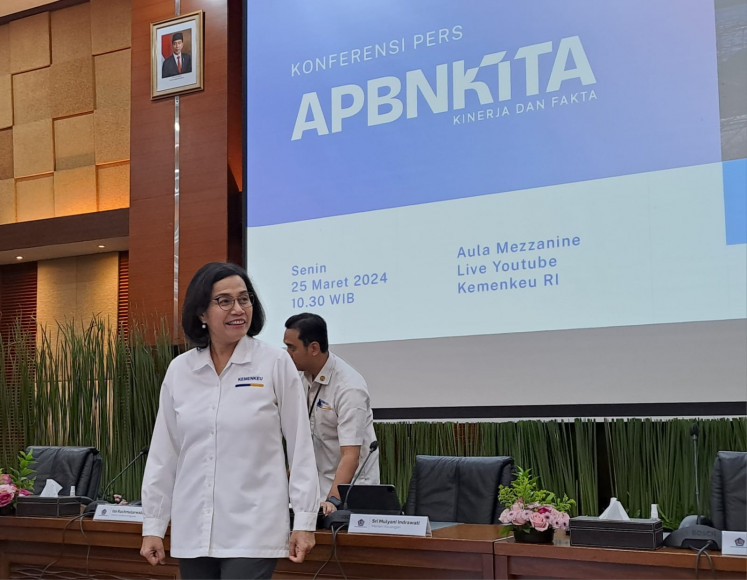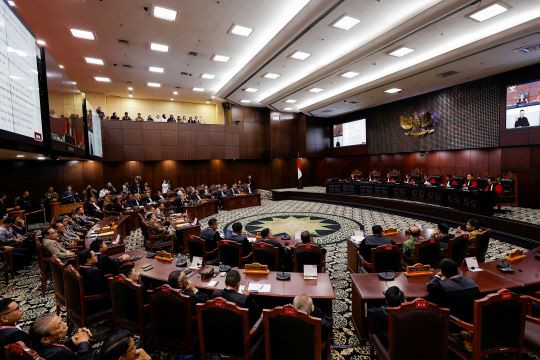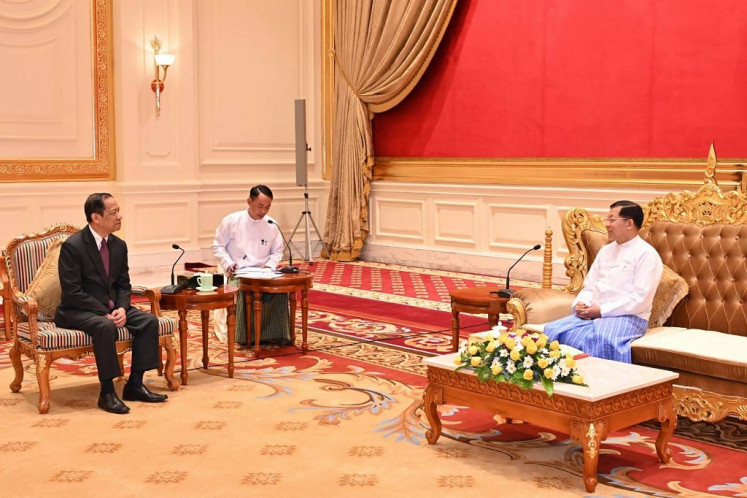Foreigners can apply for national healthcare program
The government said on Wednesday that foreigners who have worked in Indonesia for at least six months would be eligible to join the national insurance program (JKN), which was officially launched on Tuesday by President Susilo Bambang Yudhoyono
Change Size

T
he government said on Wednesday that foreigners who have worked in Indonesia for at least six months would be eligible to join the national insurance program (JKN), which was officially launched on Tuesday by President Susilo Bambang Yudhoyono.
'Foreign workers, like domestic employees in the private sector, must apply for their participation in the program. They can apply individually or collectively through the company they work for by visiting the nearest social security providers [BPJS] office starting today [Wednesday],' Deputy Health Minister Ali Ghufron Mukti told The Jakarta Post.
Under the 2004 National Social Security System (SJSN) Law, the BPJS that manages the country's universal healthcare program includes a new incarnation of state-owned health insurance firm PT Askes.
The deputy minister reiterated that the requirements and benefits for foreign workers would be the same as those for Indonesian workers.
For example, up to five members of a foreign employee's family would be covered by the healthcare program as long as they have been living in Indonesia for at least six months, he said.
'The only difference is that foreigners will have to provide the necessary documents to prove that they are legally working in Indonesia,' Mukti added.
Those who are advised to apply individually for the program include employers, independent entrepreneurs and informal workers.
While employees' premiums will be paid via their employers, individual participants will pay their premiums directly to the BPJS.
The monthly contribution for informal workers is Rp 25,500 (US$2.09) for third-class medical facilities,
Rp 42,500 (second class) and Rp 59,500 (first class). Payments can be made via major banks such as Bank Mandiri, Bank Rakyat Indonesia (BRI) and Bank Negara Indonesia (BNI).
For formal workers in the private sector, the premium is 5 percent of their monthly income. The government decided that employers should pay 4 percent and employees should pay 1 percent of the national insurance program.
However, if registration is made before July 2015, workers' premiums will amount to only 4.5 percent with the employees' portion discounted by 0.5 percent.
Coordinating People's Welfare Minister Agung Laksono said that about 1,700 out of 2,300 hospitals nationwide had signed agreements with the government to provide medical services for the program's participants.
'The program will not use a reimbursement system. Participants only need to show their BPJS cards at hospitals,' he said.
President Yudhoyono officially launched the program on Tuesday after discussing its final preparations with relevant ministers and other senior officials at the Bogor Palace in West Java.
It is expected that the entire population will be covered by the program by 2019. In the first stage, according to Agung, around 121 million people would automatically be registered for the program. They include civil servants, military personnel and police officers, workers covered by the Jamsostek health insurance program, and those who were participants of the former government-funded Jamkesmas social protection program.
The government said it would allocate a total of Rp 19.3 trillion to cover the premiums of those considered to be in 'impoverished' or 'near-impoverished' categories.
Previously, Indonesian Doctors Association (IDI) chairman Zaenal Abidin said he regretted the fact that information about the program had not been properly disseminated to health workers and the public.
Several electronic media outlets reported on Wednesday that many people were unaware that the BPJS program had come into effect on Wednesday. Some regional BPJS outlets were also reportedly not yet open to receive applications.









